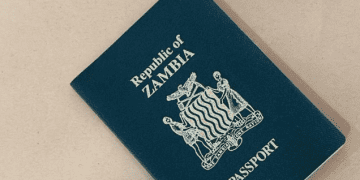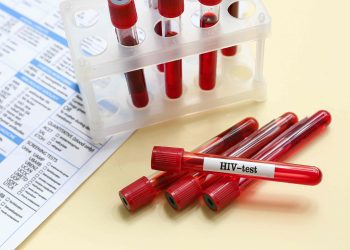22.08.2025
The City of Cape Town, is one of the most water-stressed cities in South Africa if not globally, primarily due to inadequate infrastructure, high water consumption, climate change, and growing population, said Dr. Kelvin Kamayoyo, Technical Advisor for African Rivers a nonprofit international organization concerned with the health of rivers and sustainable water resources management on the continent of Africa. Specifically, the growing population and economic growth continue to drive up water demand, thereby further straining limited resources in South Africa. According to the United Nations World Urbanization Prospects (2024), the City of Cape Town is the second most populous city in South Africa behind Johannesburg with an estimated population of approximately 5 million.
Generally, South Africa’s water scarcity is exacerbated by leakages and ageing water infrastructure, resulting in significant water losses. Nationally, South Africa loses approximately 40% of piped water due to pipe leaks and bursts caused by pressure fluctuations. The country’s high water consumption patterns further compound the issue. South Africans use an average of 237 liters of water per person per day, which is higher than the global average of about 173 liters per day. This excessive consumption is particularly concerning given the country’s limited water resources. Climate change also alters rainfall patterns, leading to droughts and floods that impact water availability.
The City of Cape Town is home to a diverse range of rivers and wetlands, boasting exceptionally high levels of biodiversity. These water systems provide numerous benefits, including freshwater for various sectors and habitats for a wide array of species, such as the Cape galaxias, ghost crab, table mountain ghost frog, fish eagle, pied kingfisher, and flamingo. The city’s long-term vision is to become a water-sensitive city, where rivers, wetlands, canals, and streams are accessible, inclusive, and safe for use. According to the City’s Water Strategy, its vision is guided by five
commitments, namely: safe access to water and sanitation; wise use; sufficient, reliable water
from diverse sources; shared benefits from regional water resources; and becoming a water
sensitive city.
Cape Town’s rivers, including the Salt River, Berg River, Breede River, Liesbeek River, Black River, Steenbras River, Palmiet River, Hex River, and Diep River, are vital components of the city’s ecosystem and water security. These rivers play a crucial role in providing water supplies for human consumption and industrial use. ln spite of having rich biodiversity, the city faced a severe water crisis in 2018, when the dams supplying the city dropped to one-fifth full, bringing it to the brink of running out of water. However, through concerted efforts and drought responses, Cape Town has over the years become a more water-wise city.
The current impressive development is that the City of Cape Town intend to enhance water security capabilities through the implementation of the Faure New Water Scheme (FNWS) project. The FNWS project will involve turning treated wastewater from the Zandvliet Wastewater Treatment Works into drinking water, with a capacity to produce 70 million liters of water per day. This initiative will significantly contribute to South Africa’s progress towards achieving Sustainable Development Goal 6 (SDG 6), which aims to ensure access to clean water and sanitation for all by 2030. And if the project is timely completed it could significantly help address the country’s water challenges, including the lack of access to clean water and sanitation in many communities particularly in the City of Cape Town. FNWS will further help strengthen Cape Town’s relationship with water and support the implementation of the City’s Water Strategy, whose theme is: “Our Shared Water Future.” This strategy aims to make Cape Town a world-class city for its citizens by ensuring sustainable water management practices.
The proposed implementation of the FNWS project through the Public Private Partnership (PPP) model pursuant to the recent feasibility study report recommendation is timely and recognizes the benefits of investment synergy. The proposed PPP model will enable the procurement of an external company to build, finance and operate the water scheme through a competitive bidding process which demonstrates transparency, impartiality and accountability. The proposed PPP model demonstrates practical implementation of the Africa Water lnvestment Action Plan and Water Security Africa Summit outcomes towards sustainable water resources management and mainstreaming commercial strategies into water security plans. Additionally, the model is most likely not going to change the water supply chain management as downstream activities would still be managed by the City of Cape Town as bulk water off-taker.
The FNWS is a vital project aimed at enhancing water security in Cape Town by increasing investment in the water sector through the PPP model. The project is likely to strengthen water security and promote sustainable water resources management in the city. Arguably, the proposed PPP model will not only increase water supply capacity but also enhance climate adaptation capabilities of the city. However, for stakeholders to fully maximize the benefits of the PPP model, it is imperative to ensure that it is inclusive and integrates small businesses and local citizens in the implementation process. This can be achieved by emphasizing local content in the model to provide opportunities for small businesses to supply goods and services (such as supply of food and beverages, laundry services, clothing materials, chemicals, and cleaning services) thereby empowering local citizens to participate in the project and contribute to the domestic economy.
The PPP model can help promote economic development, job creation and enhance water security in any given country. According to the United Nations, access to clean water and sanitation is a fundamental human right, and it is essential for achieving sustainable development. Consequently, the PPP model can play a crucial role in ensuring that this right is realized, particularly in areas, including the City of Cape Town, where water infrastructure is lacking or inadequate. Notwithstanding, the main principles of any PPP model include value for money, risk reallocation, and transparency. Therefore, embracing the PPP model in the FNWS project is a step in the right direction, and has the potential to make a significant impact on water security and sustainable development in South Africa.
For comments contact the author on email: kamayoyokm@gmail.com
References:
– United Nations. (2020). Sustainable Development Goal 6: Ensure access to water and sanitation for all.
– World Bank. (2020). Public-Private Partnerships in Water and Sanitation.
– South African Government. (2020). Water Services Infrastructure Grant.
– Faure New Water Scheme Identified Water Reuse in Cape Town.
– Water360. (n.d.). The Faure New Water Scheme.
– GreenCape. (n.d.). Building water resilience in the City of Cape Town.
– Average Daily Water Use Per Person In South Africa
– Average Cost Of Water Per Month In South Africa
– City of Cape Town. (n.d.). Water Strategy: Our Shared Water Future.
– Other relevant sources on Cape Town’s water management and conservation efforts.








































